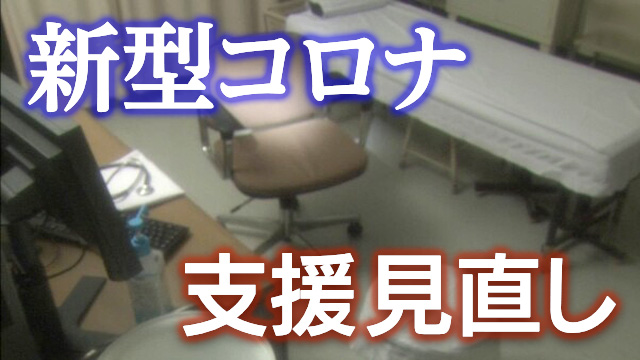Regarding support for patients with the new coronavirus, the Ministry of Health, Labour and Welfare will review it from next month, such as requiring a part of the high-cost coronavirus treatment drug that has been paid entirely by public funds.
Although the new coronavirus was classified as a "Class 5" under the Infectious Diseases Act in May, the Ministry of Health, Labour and Welfare has continued to provide some support to patients and medical institutions since then.
At an expert meeting held on the 5th, the Ministry of Health, Labour and Welfare (MHLW) presented the specific details of the reduction of support that will be provided from next month.
Review of support for patients
Among them, in the review of support for patients, from next month we will ask them to pay part of the expensive corona treatment drug, which is currently paid entirely by public funds, and exceeds 9,3000 yen.
Depending on your age and income, you will be asked to pay between 9000,1 yen and 2,1 yen.
With regard to inpatient medical expenses, we have been subsidizing up to <>,<> yen more after applying the High-Cost Medical Care Benefit System when medical expenses per month become high, but from next month we will halve the subsidy amount to a maximum of <>,<> yen.
Review of support for medical institutions
On the other hand, in the review of support for medical institutions, we have been paying subsidies as a "bed securing fee" when medical institutions vacate beds in preparation for accepting inpatients with the new coronavirus, so-called "vacant bed compensation," but from next month it will not be paid until the infection situation exceeds a certain standard.
In addition, we will review medical fees and support for facilities for the elderly, which were added under special exceptions.
The Ministry of Health, Labour and Welfare (MHLW) has decided to review support measures for the new coronavirus in the same way as infectious diseases such as seasonal influenza from April next year.
Partial co-payment of therapeutic drugs Concern that some people will refuse prescriptions
Doctors at clinics in Tokyo, who have been prescribing drugs for the new coronavirus to patients at risk of developing severe illness, are concerned that some people will refuse prescriptions or refrain from seeing a doctor if some of the drugs are self-paid.
Mii Clinic Yoyogi in Shibuya-ku, Tokyo accepts about 20 to 30 patients a day as a fever outpatient.
The percentage of patients diagnosed as positive for the new coronavirus was about 8% in August, but has increased to 3% since the beginning of September.
Until now, the clinic has prescribed therapeutic drugs for the new corona that can be used without co-payment for patients with high risk of severe illness such as those with underlying diseases and the elderly, and patients with severe symptoms, but according to doctors, many patients have sore throats after taking it. It means that the fever is going down.
Regarding the fact that some of the drugs will be self-paid from next month, Toshio Miyata, president of Mii Clinic Yoyogi, said, "I think there are some unavoidable parts of the financial situation, but since the treatment for the new coronavirus is a new drug and expensive, some people may refuse to take the medicine if the medicine is partially self-paid. Some drugs are not eligible for administration until the early stages of infection, so I would like you to visit a clinic in order to expand treatment options. I'm worried that putting up with it at home will make it more severe."
The effort of medical institutions is still great, and we should consider how to provide support
Regarding the review of support measures, Takao Omagari, director of the Center for International Infectious Diseases at the National Center for Global Health and Medicine, who specializes in infectious diseases and serves as a member of the Infectious Diseases Subcommittee of the Ministry of Health, Labour and Welfare, said, "It cannot be said that the number of medical institutions accepting patients with the new coronavirus has increased sufficiently. In addition, from next month, support measures such as hospital bed securing fees will be reduced, and fewer medical institutions will accept inpatients, making it difficult to find beds. The effort of medical institutions accepting patients with the new coronavirus is still very large, so we should continue to consider how to provide support to match it."
"From next month, some patients will be worried about whether to use drugs because they will have to pay their own money for therapeutic drugs, so medical professionals will be required to understand what kind of people should use therapeutic drugs and communicate with patients carefully.
"I feel that information about the new coronavirus is decreasing, but even now, when a high-risk person is infected, it is still a life-threatening disease. I want them to recognize this and take countermeasures."

